Eating For Energy After 50
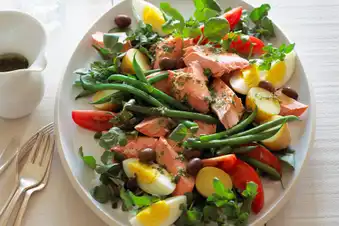
Pack in Protein
Top that salad with salmon. Protein supports almost every function of the body, and you need more of it as you age. Adults 50 or older who weigh around 165 pounds should get at least 30 grams of protein per meal. You’ll need more if you weigh more.
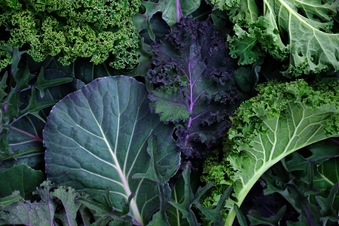
Choose Calcium-Rich Foods
You must have calcium to build strong bones. Your heart, muscles, and nerves also require calcium to work well. Men over 50 need at least 1,000 milligrams a day. Women should aim higher, around 1,200 milligrams a day. Dairy, leafy greens, soft-boned fish, and calcium-fortified foods can get you there.

Home In on Whole Foods
Hungry? Reach for an apple or some carrots instead of those chips. When your diet is high in processed, pre-packaged foods, you feel more sluggish and heavy. Fresh, whole foods have the vitamins, minerals, and antioxidants that boost energy and wellness.
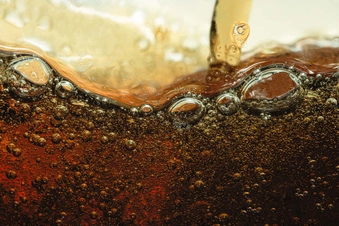
Slash Your Sugar
Food and drinks with added sugar are quick energy zappers. You’ll feel a rush at first, but the crash comes soon after. Keep your diet low-sugar for longer-lasting vitality during the day.
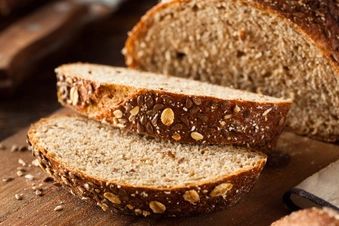
Get Whole Grains
For sustained energy, choose high-fiber whole grains. These foods help keep your blood sugar steady so that your energy doesn’t spike and crash.
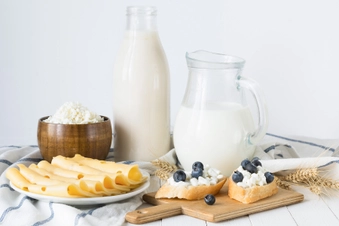
Boost Your B12
If your diet is low in vitamin B12, you risk fatigue and muscle weakness. Some people on vegan or vegetarian diets may not get enough of this nutrient because plant foods don’t have it. You get B12 from poultry, meat, fish, and dairy products, as well as some fortified breakfast cereals.
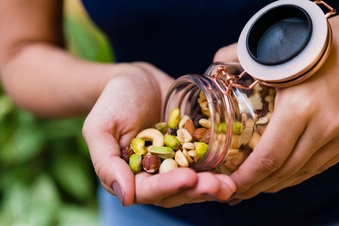
Snack on Seeds and Nuts
Nuts and seeds are nutrient-dense, which means you get a lot of benefit from a little serving. Let these healthy fat-, protein- and fiber-packed snacks satisfy your need for a quick crunch.
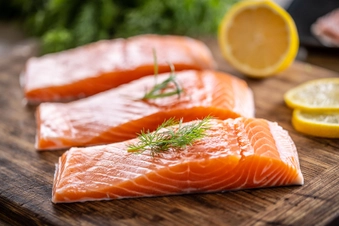
Focus on Healthy Fats
Dietary fat is crucial for energy, but keep the fat you eat healthy: Avoid saturated fats (animal-based fats and full-fat dairy) and stick with liquid non-tropical plant oils, low-fat or nonfat dairy, and fish.
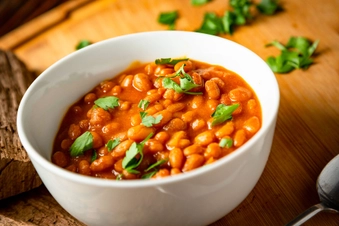
Eat Your Beans
Beans are low on the glycemic index, which means they don’t increase blood sugar as much as other foods do. Beans take longer to digest and boost magnesium, too, which your cells need to make energy.
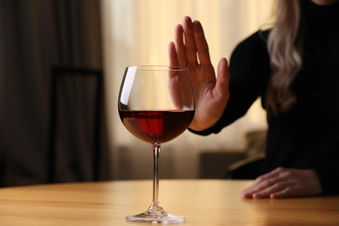
Cut Back on Booze
As you age, your body metabolizes alcohol differently than it did when you were younger. You’re likely to feel the effects more with less to drink, leaving you dragging. Save spirits for special occasions, or up your mocktail game and avoid alcohol completely.
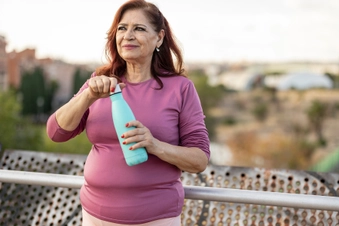
Drink More Water
The biggest side effect of dehydration is fatigue. Boost your water consumption by adding fresh fruit to make it more tempting. Keep a water bottle on hand during the day so you’re reminded to sip.
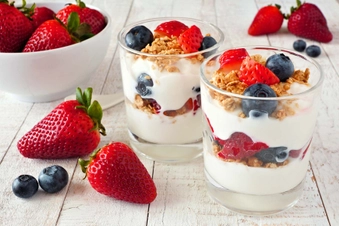
Eat Smaller, More Frequent Meals
Instead of a big breakfast, lunch, and dinner, opt for multiple nutrient-dense snack sessions throughout the day. This helps your brain maintain a steady supply of nutrients so you feel less fatigued.
Show Sources
IMAGES PROVIDED BY:
- DigitalVision/Getty Images
- iStock/Getty Images
- Tetra Images/Getty Images
- DigitalVision/Getty Images
- iStock/Getty Images
- Moment/Getty Images
- iStock/Getty Images
- Moment/Getty Images
- iStock/Getty Images
- iStock/Getty Images
- Moment/Getty Images
- iStock/Getty Images
SOURCES:
Stanford Lifestyle Medicine: “Protein Needs for Adults 50+.”
Mayo Clinic: “Calcium and calcium supplements: Achieving the right balance,” “Vitamin B-12.”
Johns Hopkins Medicine: “Age-Defying Energy Levels.”
EatRight.org: “Eating to Boost Energy.”
Harvard Health: “4 ways to boost your energy naturally with breakfast,” “Quick-start guide to nuts and seeds,” “9 Tips to Boost Your Energy,” “Eating to Boost Energy.”
American Heart Association: “Dietary Fats.”
Northwestern Medicine: “Jump Start Snacks.”
University of Washington: “Understanding how magnesium moves.”
National Institute on Aging: “Facts About Aging and Alcohol.”